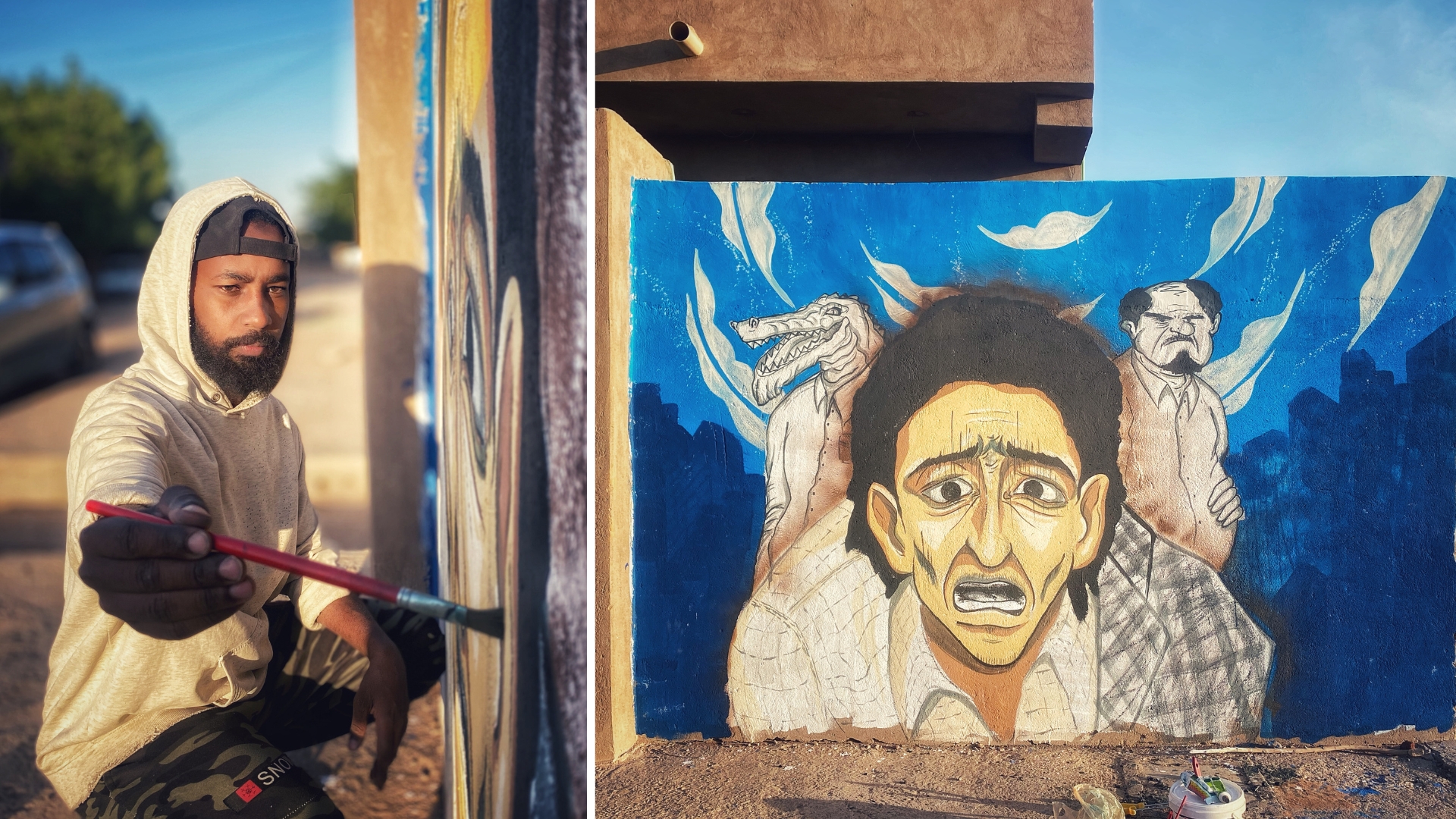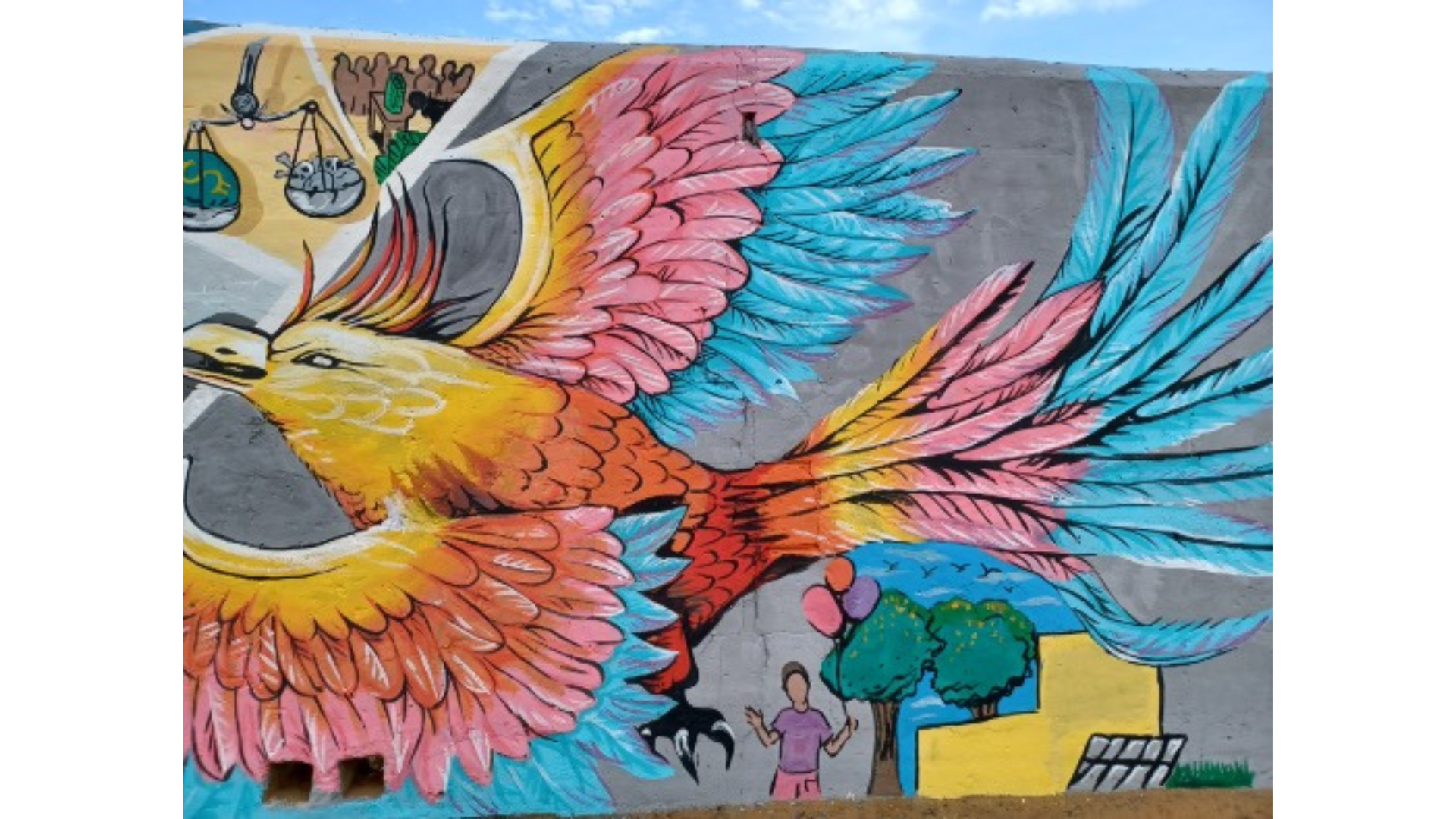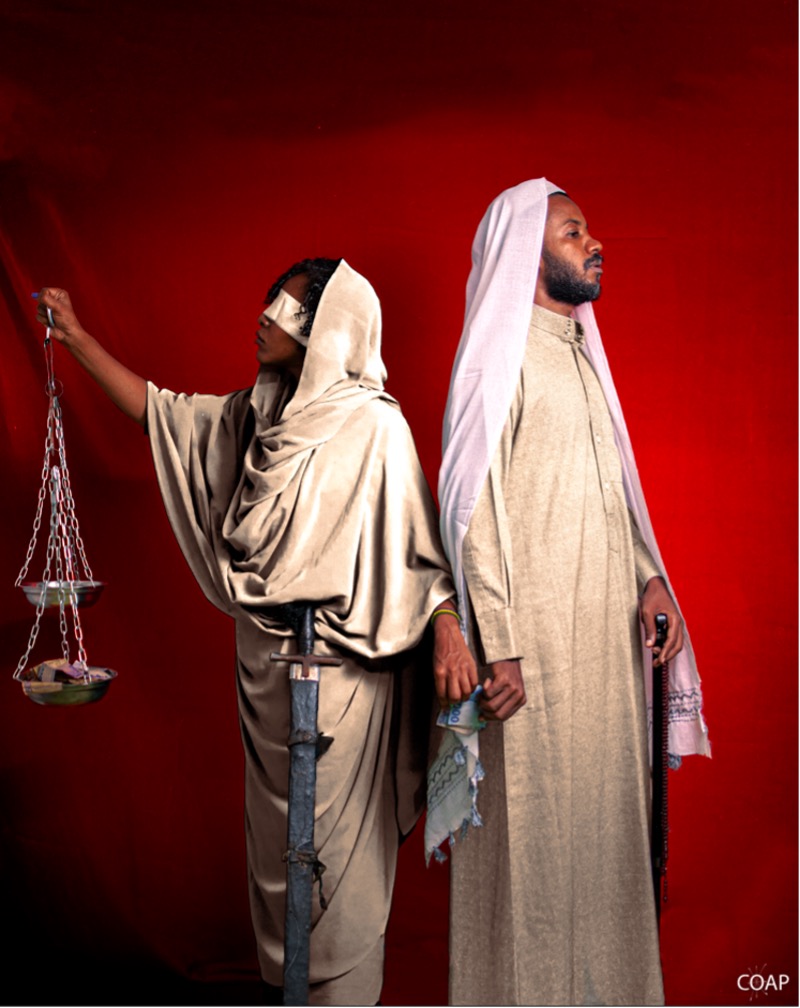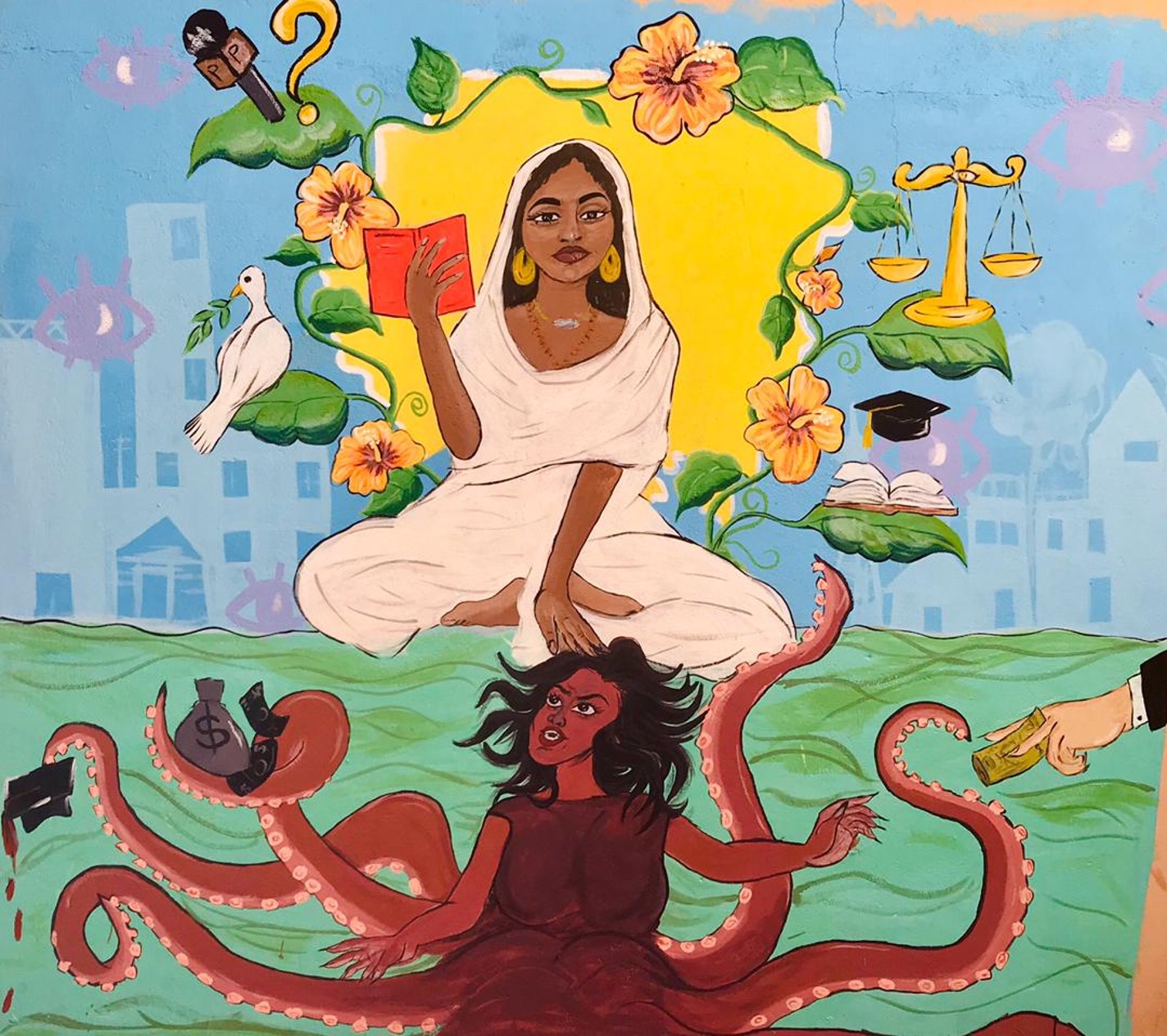A Canvas for Anti-Corruption: Sudan’s Artists and the Importance of Messaging
In combating corruption, governments, activists, and other anti-corruption practitioners must hone their messaging effectively to rally support and resources to the cause. Traditional anti-corruption messaging efforts, which range from billboards to government announcements, risk being ineffective or even counterproductive — reinforcing in the minds of communities that corruption is rampant and impossible to address. Anti-corruption messaging thus serves a crucial purpose but can easily fall short of its goals. As such, alternative strategies and tactics need to be explored. To this end, CIPE has been collaborating with partners in Sudan and Nepal to develop multimedia anti-corruption messaging as part of CIPE’s broader efforts to support strategic communications from grassroots-level activists.
As part of this work, CIPE partnered with a Sudan-based art collective called Contraband, to utilize art pieces — murals, paintings, portraits, and digital art — to convey anti-corruption messaging in Sudan — which has been consumed by armed conflict since April 2023.

“Since the first exchange of fire between them, we thought the matter would not last more than a week, and things would go back to how they were,” said Ibrahim, an artist based in Sudan, of the war between Sudan’s army and the paramilitary group known as the Rapid Support Forces (RSF). Nine months on, the war — fueled by corruption among both factions — rages on. “I did not feel surprised…because [the war] was an inevitable result of the corrupt practices in power, starting with the army’s interference in politics, and the independence of the RSF from any legal association that could hold them accountable or criminalize them, so it was inevitable that they would fight among themselves,” said Nafeesa, another Sudanese artist. Even while facing violence and displacement, activists in Sudan have taken a creative approach to speaking out on the war and its roots in corruption.
Ibrahim and Nafeesa are among 13 Sudanese artists commissioned by Contraband and CIPE — both of whom had to relocate staff in the wake of the violence. At the outset of the project, Contraband put out a call for applicants with established art portfolios and a history of democratic activism — candidates whose credibility in the artistic community as well as among activist circles was unimpeachable. In Sudan, where both government and RSF forces are plundering the country’s resources — and shredding any semblance of public trust in the process — it is especially important to have trusted sources to share anti-corruption messages.

The artists in Sudan created murals, portraits, and other two-dimensional art pieces in the spirit of giving common cause to their fellow citizens and combating the corruption that is fueling the conflict. When surveyed, all 13 artists involved in the work agreed that art is an effective means of communicating about anti-corruption, and 11 of them indicated that visual art is highly or moderately effective to communicate anti-corruption messaging specifically in Sudan. “What gives art an advantage in expression is that it addresses all groups and all minds and ages. At the same time, it addresses both the mind and the heart, which gives it the advantage of delivering information in a smooth and innovative way,” said another of the 13 artists. “Art is a common language among peoples,” adds a colleague named Samir.

Whatever the impact of their work on the project, for the artists involved, knowing that they were among a group of Sudanese citizens engaged in anti-corruption efforts was a victory in itself. “To find activists and artists in Sudan active in resisting and combating corruption is an encouragement to me and a great motivation to work on resisting corruption,” said Samir. One artist compared corruption to cancer, and that the only cure was for citizens to unite in resistance to it. To her fellow citizens of Sudan, artist Aliyah urges, “let us uproot corruption from its roots, plant goodness, and see its flowers.”

CIPE will continue its multimedia anti-corruption messaging efforts, with its next iteration occurring in Nepal.
To view more work by Contraband as well as more art pieces by artists involved in the project, readers can visit their Instagram pages below:
@contraband249
@mecotworld
@iamtanzil126
@osman_haidar_ebraheem
@moh.ahmed_ohaj
@tawdud_fq
Please note that the views and opinions expressed by the artists are their own and do not reflect the views and opinions of the Center for International Private Enterprise.
